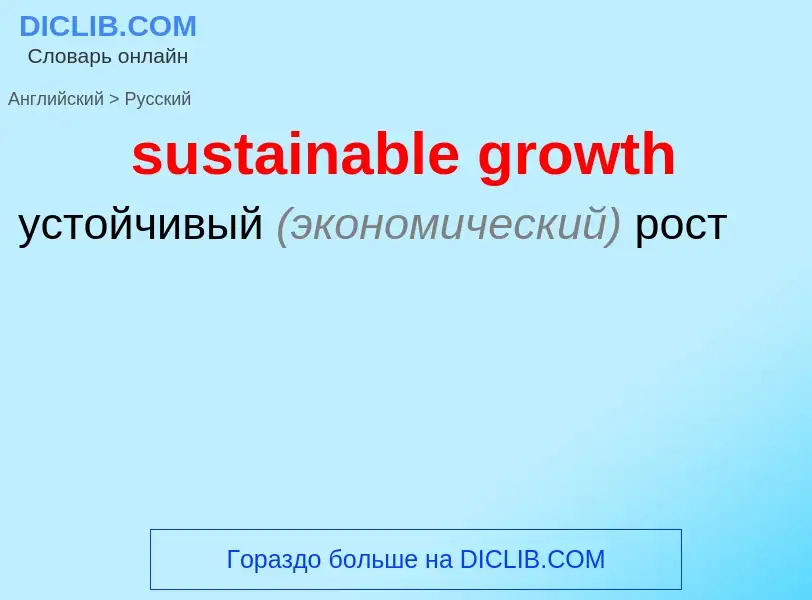Translation and analysis of words by ChatGPT artificial intelligence
On this page you can get a detailed analysis of a word or phrase, produced by the best artificial intelligence technology to date:
- how the word is used
- frequency of use
- it is used more often in oral or written speech
- word translation options
- usage examples (several phrases with translation)
- etymology
sustainable growth - translation to russian
[grəuθ]
общая лексика
рост
развитие
произрастание
выращивание
культивирование
растительность
поросль
новообразование
возрастание
вырост
выростковый
нарастание
нарост
обрастание
порядок роста
прирост
разрастание
разращение
ростовой
увеличение
медицина
рост (процесс)
строительное дело
наращивание
растительный покров
существительное
общая лексика
рост
развитие
прирост
увеличение
усиление
распространение
выращивание
культивирование
произрастание
культура (бактерий)
плод
продукт
предмет выращивания
растительность
поросль
щетина
урожай
рост, развитие
прирост, увеличение
выращивание, культивирование
медицина
опухоль
новообразование
новообразование, опухоль
бактериология
культура
синоним
Definition
Wikipedia
The term "sustainable communities" has various definitions, but in essence refers to communities planned, built, or modified to promote sustainable living. Sustainable communities tend to focus on environmental and economic sustainability, urban infrastructure, social equity, and municipal government. The term is sometimes used synonymously with "green cities," "eco-communities," "livable cities" and "sustainable cities."
Different organizations have various understandings of sustainable communities; the term's definition is contested and still under construction. For example, Burlington, Vermont's Principles of Sustainable Community Development stress the importance of local control of natural resources and a thriving non-profit sector to a sustainable community. The Institute for Sustainable Communities outlines how political empowerment and social well-being are also part of the definition. Additionally, referring to communities in Shanghai and Singapore, geographer Lily Kong has paired concepts of cultural sustainability and social sustainability alongside environmental sustainability as aspects of sustainable communities. Meanwhile, the UK's 2003 Sustainable Communities Plan often abbreviates its definition of sustainable communities as "places where people want to live and work, now and in the future". Addressing the scale of sustainable communities, political scientist Kent Portney points out that the term sustainable communities has been used to refer to a broad variety of places, ranging from neighborhoods to watersheds to cities to multi-state regions.
Etymologically, the term "sustainable community" grew out of the related discourses of "sustainability" and "sustainable development" that gained widespread use among local, national, and international politicians and policymakers in NGOs starting in the late 1980s. The term originally referred to environmental concerns and was later applied to cities.

